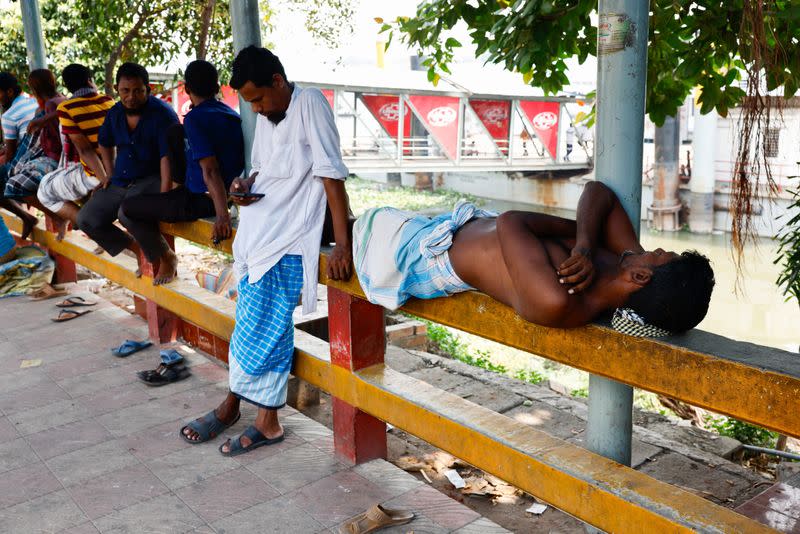Bangladesh has shut thousands of schools as it struggles through its lengthiest heatwave in half a century, with widespread power cuts only compounding locals’ misery.
Temperatures in the South Asian nation’s capital of Dhaka have surged to around 40 degrees Celsius (104 degrees Fahrenheit), with the poor bearing the brunt of the blazing sun.
“We have never seen such a prolonged heatwave since Bangladesh’s independence in 1971,” said Bazlur Rashid, a senior official at the Bangladesh Meteorological Department.
Tens of thousands of primary schools were shut down by the government, and electricity production has been drastically cut, even as demand for air conditioners and fans has surged.
- NIGERIA DAILY: Why There Is A Fall In Price Of Cooking Gas In Nigeria
- TETFund approves N130m to strengthen skills acquisition for polytechnic
On Monday, the country was forced to suspend operations at its biggest power plant because the government was unable to afford the coal to fuel it.
The Bangladeshi taka depreciated about 25 percent against the US dollar last year, driving up the cost of fuel imports and power utilities.
Other plants have fallen well short of meeting demand, leading to hours-long blackouts.
‘Children falling sick’
Housewife Tania Akhter said that her youngest child was resting at home with classes cancelled, but her 12-year-old daughter was still going to school.
“Those classes should also be shut down because the students are suffering a lot in this heat – they are falling sick,” Akhter said.
The heatwave began in April and ran into early May before easing, then resumed late last month, with forecasters predicting the mercury will remain high until the end of the week.
“Every summer Bangladesh witnesses heatwaves, but this year’s heatwave is unusual,” Rashid told AFP. “In the past, heatwaves would only continue for a few days or a week, but this year it has continued for two weeks and more.”
A study last month by the World Weather Attribution group found that climate change had made record-breaking deadly heatwaves in Bangladesh – as well as India, Laos and Thailand – at least 30 times more likely.
On June 3, the temperature in the northern Dinajpur district hit 41.3 degrees Celsius (106.3 degrees Fahrenheit), the highest recorded there since 1958.
“The heatwave in the past would affect only some parts of the country,” Rashid added. “This year it is very extensive and spread to almost all parts of the country.”
Power cuts in some rural districts stretch for between six and 10 hours a day, officials from the state-run power company said.

 Join Daily Trust WhatsApp Community For Quick Access To News and Happenings Around You.
Join Daily Trust WhatsApp Community For Quick Access To News and Happenings Around You.